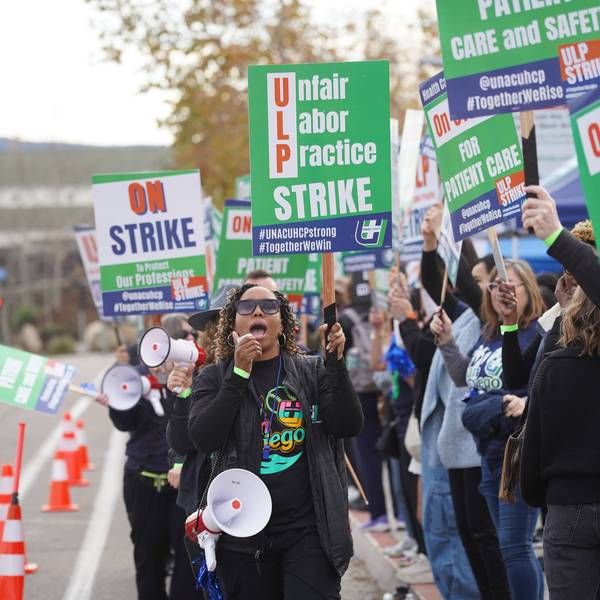On cable news, I'm considered a swing-state voter. In my hometown of Cleveland, I'm a mother, a home care worker, and one of hundreds of thousands of underpaid workers in the "Fight for $15" movement that is winning better pay for moms and dads nationwide.
On Aug. 6, all of those roles came together when I sat down with seven other home care workers from across the country and Democratic presidential candidate Hillary Clinton to discuss the crisis in home care facing our country. The fact is, Americans are getting older and the demand for services that let people live independently in their homes as long as possible is high. And while home care is the fastest-growing profession in the country, the challenging conditions coupled with low pay are keeping people from taking up this work.
I work 50 hours each week, providing home care services for two or three people, helping with toileting, bathing, and dressing. I lift consumers who are non-ambulatory into and out of their wheelchairs, or move them throughout their houses. I prepare meals, do laundry, and wash dishes. I make sure my consumers take their medication and keep track of how they're feeling day-to-day. When I can, I help them get to and from the doctor's office and do routine errands like go to the grocery store and pharmacy.
But my job is more than these tasks. It's being there for my clients when no one else is around. It's giving them the ability to live at home for longer than they could otherwise, surrounded by their family and neighbors, their favorite books and tea mugs and familiar furnishings.
And yet, after 14 years in home care, I'm paid just $8 an hour, and have never received a raise. The agency I work for provides no retirement plan, no vacation and no sick leave. Caring for people is so rewarding, but my family is hurting because of it. I can't make ends meet at home and have to go to a food bank to feed my children. Each month, I agonize over whether to pay the full month's rent or, for instance, to buy new shoes for my eight-year-old to replace the pair with holes in the bottom.
Even though home care jobs are some of the fastest-growing in the country, the workforce is not as strong or effective as we could be. Difficult working conditions, low wages, and limited opportunities for training and advancement lead to high turnover. Home care workers and our consumers are both in the middle of a "care crisis." A recent report from the Fight for $15 campaign found that - in every state in the country - the number of seniors in need of home care surpasses the number of available home care workers.
Home care workers and our clients, across dozens of states, including Ohio, have joined the national Fight for $15. Last month, we stood with other underpaid workers to celebrate New York fast-food workers' win, declaring, "we want $15 too." Home care workers know what $15 an hour would do for our lives and the lives our children. We also know what it will do for a desperately needed workforce by the country's rapidly growing aging population.
At the once-in-a-decade White House Conference on Aging earlier this summer, President Barack Obama talked about the importance of training more home care workers to meet this rising demand.
Our roundtable discussion with Hillary Clinton further proves that our national leaders are concerned about - and thinking about solutions for - our home care crisis.
As the 2016 election cycle progresses, I hope elected leaders and candidates alike take these issues seriously. My consumers need me for nearly everything that makes life worth living, but our home care system isn't working for seniors or for workers.
A minimum wage of $15 an hour and the right to form a union would mean I could finally have economic stability in my life. I would be able to afford summer programs for my children, as well as health insurance and child care. A new pair of shoes. A voice on the job and $15 an hour would mean we could end the crisis in-home care -- for the people who provide the care and for those who rely on it.



